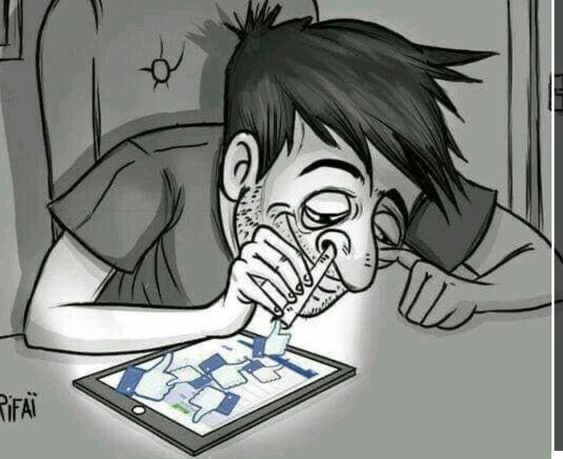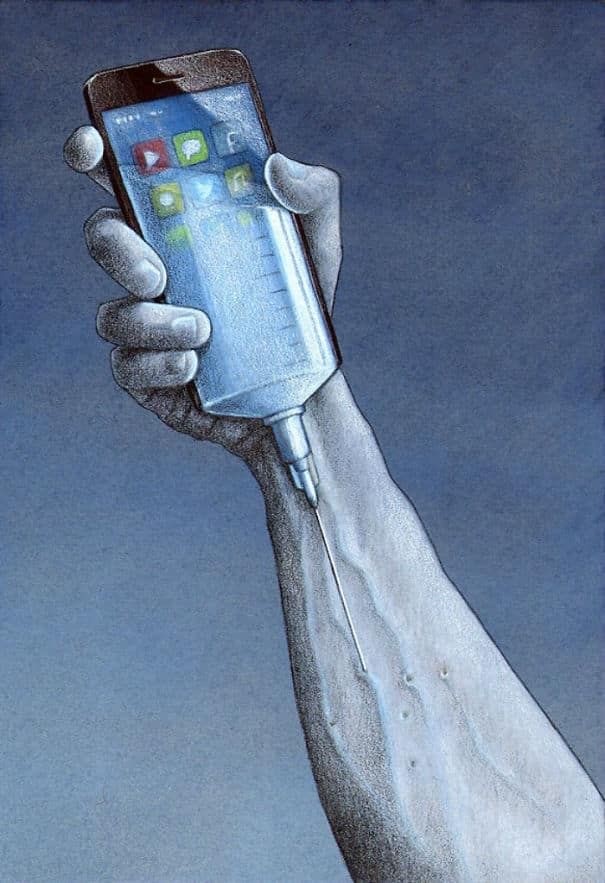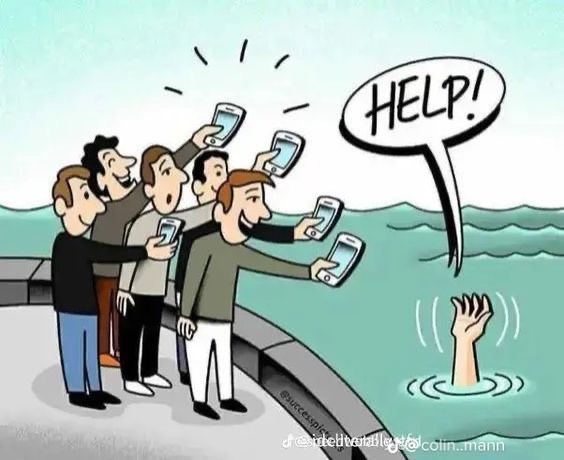The tapestry of the modern digital age, social media stands as a vibrant thread, intricately woven into the very fabric of our existence. It is the virtual realm where friendships flourish, the pulse of current events thrums, and our stories are etched into the digital annals. Yet, beneath the dazzling surface of this digital realm lies a perilous undertow—a siren’s call to addiction that threatens to engulf us in its tempestuous waters.
Social media’s luminous allure beckons us with promises of instant connection and boundless self-expression. It fosters communication across oceans and grants us a stage upon which to paint the canvas of our lives. Yet, as we bask in its luminosity, we must also acknowledge the shadows it casts—a growing, insidious addiction that stealthily gnaws at the sinews of our mental fortitude, emotional equilibrium, and even our physical well-being.
The severe impact that social media addiction has on mental health stands out among the many alarming aspects of the problem. An endless need for approval is aided by the compulsive need to constantly check alerts, evaluate likes, and read comments. Anxiety and despair may result when we start to indissolubly relate our sense of worth to the number of likes we get or the degree of interaction our online work receives. As people regularly find themselves comparing their own lives to the painstakingly created, frequently idealised portrayals of others’ existences in the digital space, the ubiquitous fear of missing out (FOMO) also emerges as another psychological effect of social media addiction.

Social media platforms are masterworks of seduction with their entrancing digital tapestry. They use algorithms as sorcerers casting spells in their painstaking design to capture our attention. These algorithms generate personalised content for each user with the sole purpose of retaining our unwavering involvement for as long as feasible. The result is a never-ending scan through captivating posts, a constant consumption of content that undermines our ability to concentrate and be productive while blending our personal and professional lives. Even in the sacred hours of the night, this addiction persists, trapping us in late-night scrolling when we ought to be snuggled in the embrace of sound sleep.
The physical ties that bind our real-world relationships begin to dissolve in the maze-like worlds of social media addiction. We are frequently seduced by the siren song of the digital world, pulling us away from the embrace of our real-world relationships. We could unintentionally neglect to take care of our offline relationships in our zeal for online personas. What is the result? The echoes of abandoned friendships reverberate in the silence of our lives, filling the immense hole with isolation and loneliness.
The wall of privacy falls when someone is addicted to social media, leaving them vulnerable to online robbers. The propensity to disclose personal information excessively creates a crack in our defences, leaving us open to the wrath of cyberbullying, the sinister grips of identity theft, and the frightening spectre of stalking. Additionally, social media monopolies’ constant monitoring of users and collection of their data raises the unsettling possibility that private data could be used against individuals, raising concerns about misuse and privacy violations.

The toll exacted by social media addiction extends beyond the ethereal realms of the digital. It inexorably infiltrates the physical domain, culminating in a protracted screen-time ritual that begets the maladies of sedentary living: obesity, ocular strain, and the malaise of poor posture. Yet, the pernicious influence of this addiction transcends the corporeal realm, permeating the psyche of impressionable youth. The relentless exposure to unattainable beauty standards and deleterious content cultivates an insidious self-image, casting shadows of self-doubt upon youthful souls, fostering a landscape where self-esteem withers in the corrosive glare of unattainable ideals.
Social media addiction is a clamorous reality that confronts us as a real, difficult problem that begs for solutions. How do we combat this contemporary ailment is the crucial question that nags at us. The first step in this quest requires acknowledging addiction’s sneaky hold and the detrimental effects it has. In this journey, self-awareness serves as the guiding light, a light that can break the compulsive bonds of social media dependence. Here, people can create their own defences by establishing screen time limits, defining tech-free zones, and planning intentional breaks from the digital world so they can reconnect with the real world.
Parents and educators step forward as guiding lights in this maze of digital enchantment, charged with the sacred task of setting a course for the kids to follow as they navigate these perilous waters. Armed with information, they take on the role of stewards of wisdom, teaching kids the dangers of excessive screen time, the value of privacy, and the deep importance of interpersonal interactions in person. The revered institutions of higher learning join this fight by implementing digital literacy initiatives that illuminate the road to ethical online behaviour and create a generation that is capable of navigating the digital world with discernment and resiliency.

Social media’s powerhouses must assume their fair share of responsibility for stemming the raging flood of addiction. They have the ability to bring about change, create tools that encourage users to manage their screens carefully, raise awareness of healthy usage patterns, and demolish the devices of addictive design that trap us in a never-ending scroll.
The undeniable fact that social media, with its capacity for connectivity, is a powerful instrument, even as we pull the curtains on this digital tapestry, continues to be the case. We cannot, however, overlook the ominous precipices of addiction lurking beneath the surface. The negative repercussions on our physical health, relationships, privacy, and mental health cast a sombre shadow that compels us to act quickly to address this problem.
It is a clarion call for unity—a summons for individuals, families, educators, and the very architects of the digital realm to join hands in combatting the insidious spectre of social media addiction. A harmonious symphony emerges from this collective effort, one that nurtures healthier digital habits and fosters the reclamation of lives balanced and fulfilled in the throes of the digital age. The inaugural step, perhaps, lies in the art of disconnection, however fleeting, as we seek equilibrium in this uncharted digital terrain.
Sources
- https://blog.corehealth.global/disconnect-to-reconnect-the-benefits-of-unplugging-from-social-media?hs_amp=true
- https://m.timesofindia.com/city/hyderabad/addiction-to-social-media-leaving-kids-disconnected/articleshow/28253621.cms
- https://ranchcreekrecovery.com/blog/negative-effects-of-social-media-during-addiction-recovery/
- https://www.medicalnewstoday.com/articles/social-media-breaks




